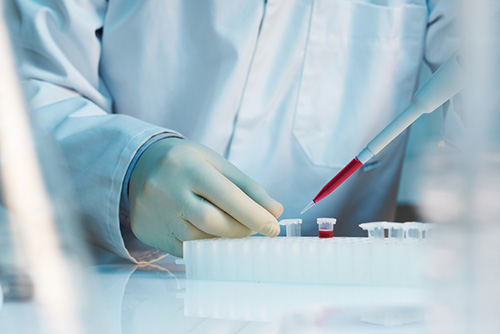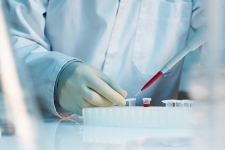Dangers of Using Unregulated Stem Cell Products
When dealing with a health issue – be it orthopaedic or otherwise – many people will go to virtually any length to feel better. One of the more promising-sounding options currently out there are products derived from stem cells that are taken from umbilical cords or placentas when a healthy baby is born. Under the right circumstances, this is a viable treatment option for some; however, not all products derived from stem cells or blood are regulated. The FDA and CDC both recently warned against the use of unregulated products, and we want our patients to know how to keep themselves safe.

Unregulated Stem Cell Products Put Patients at Risk
Recently, there was an official note that went out warning doctors and other medical professionals about the dangers associated with the use of unregulated stem cell products. Cases have popped up where patients were getting unapproved products that were made from placentas (from C-sections) that made wound up making them ill. The overarching goal of the notice was for the FDA to help warn patients about the existence of these products and to explain ways of staying safe. While stem cell research is showing great promise, it has been deemed that these unregulated products being offered are not safe to use and should be avoided at all costs.
Some of the ways that an unregulated stem cell product could harm a patient include:
- The cells do not work in the manner that was originally anticipated.
- Introduction of the cells can lead to an infection in the body.
- Reactions at the injection site.
- Potential of contaminated products being put into a human body.
- Tumors that grow as a result of the cells.
- Cells change into the wrong type of cells and migrate to various (new) areas of the body other than they were intended.
How to Protect Yourself from Harmful and Unregulated Stem Cell Products
According to both the CDC and the FDA, there are several things that patients can do to keep themselves protected from dangerous products. They include:
- Research to make sure any therapy you consider has approval by the FDA.
- Ask to see permission for use directly from the FDA if the FDA has not yet approved the product.
- Always ask questions to make sure you have all of the information possible before having any type of procedure done.
- Ask for copies of all paperwork before, during, and after any type of procedure, even if you are using your own cells.
- Only seek out treatments in the United States since other countries have different, often lacking, regulations.
- Use caution, as not all products are created equally.
Stem Cells Have the Potential to Help with Many Ailments
Many different agencies, including the FDA, and medical journals, such as The New England Journal of Medicine, have recognized the benefits that healthy stem cell products can provide. Stem cells have the potential to help with the repair, regeneration, and restoration of cells that are affected by a variety of diseases and medical conditions. However, if the products being used are not healthy to begin with, the use of those products can introduce new ailments into an already impaired body.
It is important to know that currently there are limited uses for approved stem-cell research and, to date, no products that have been approved by the FDA. Some clinics claim that products derived from stem cells do not fall under the provisions of biological products governed by the FDA, but this is not true. If you’re interested in finding out what type of stem cell therapies could be offered, please don’t hesitate to ask. The orthopaedic surgeons and healthcare professionals here at Prairie Orthopaedic, located in Lincoln, Nebraska, can discuss with you the type(s) of therapy you have questions about; we are also more than happy to provide you with information about the FDA-approved therapies that we do utilize here in our practice.

